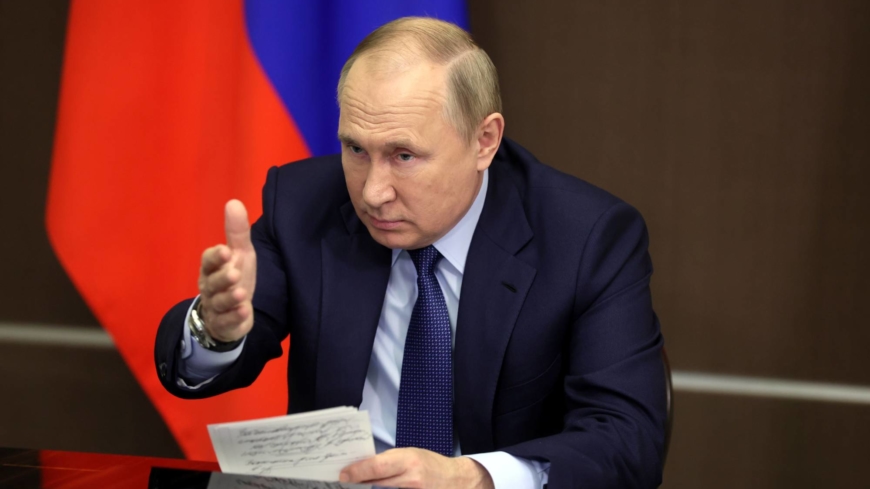The United States (US) President Joe Biden on Tuesday continued Washington’s calls for further diplomacy over the crisis in Ukraine, asserting that the US and the North Atlantic Treaty Organization (NATO) pose no threat to Russia.
Speaking from the White House’s East Room, Biden reaffirmed Washington’s support for NATO and Ukraine in the face of Russia’s belligerent military activity at the border with Ukraine. That being said, Biden also welcomed Russia’s willingness to continue talks with the West, saying that there is “plenty” of room for diplomacy. The US president assured Russia that the US and NATO do not have missiles in Ukraine and have no future plans to do so, addressing one of the demands laid out in Russian President Vladimir Putin’s security proposal.
However, Biden made it clear that if Russia invades Ukraine, the US, and its European Allies will swiftly retaliate by imposing “long-term consequences” targeting the Russian economy; in particular, Washington will shut down the Nord Stream 2—Moscow’s flagship natural gas pipeline to Europe. Biden also clarified that America is not targeting the Russian people, adding that Washington’s intentions are not to destabilise Moscow either. He stressed that if Russia attacks Ukraine it will be a “war of choice” that will most certainly be met with “overwhelming international condemnation.”
During his speech, Biden continued to urge Americans in Ukraine to leave the country, citing security concerns and the presence of 150,000 Russian troops in Belarus and along Ukraine’s border. Biden also confirmed that the US embassy in Kyiv has been shifted temporarily to the city of Lviv near the Polish border. Last month, the Biden administration announced that its mission in Kyiv will operate at a reduced capacity due to security concerns regarding Russia; Ukraine criticised the move at the time, calling it “premature.”

White House Press Secretary Jen Psaki told reporters that Biden wanted to make Americans aware of the various consequences of a Russian invasion of Ukraine—highlighting that US energy markets could be disrupted and that there could be an increase in gas prices. Psaki emphasised that Biden prefers leader-to-leader diplomacy, pointing to Biden’s phone call with French President Emmanuel Macron, wherein the two leaders went over their recent conversations with the Ukrainian and Russian leaders.
Last week, White House National Security Advisor Jake Sullivan publicly warned that Russia could invade Ukraine “any day,” adding that Moscow has prepared a range of attacks on Kyiv, including cyber-attacks and a full-scale invasion. Against this tense backdrop, diplomatic engagement between the West, Russia, and Ukraine has increased significantly, with Biden conducting bilateral talks with both Putin and Ukrainian President Volodymyr Zelensky over the weekend. In addition, on Monday, German Chancellor Olaf Scholz met Zelensky in Kyiv in a display of solidarity ahead of the crucial Munich Security Conference in Berlin.

